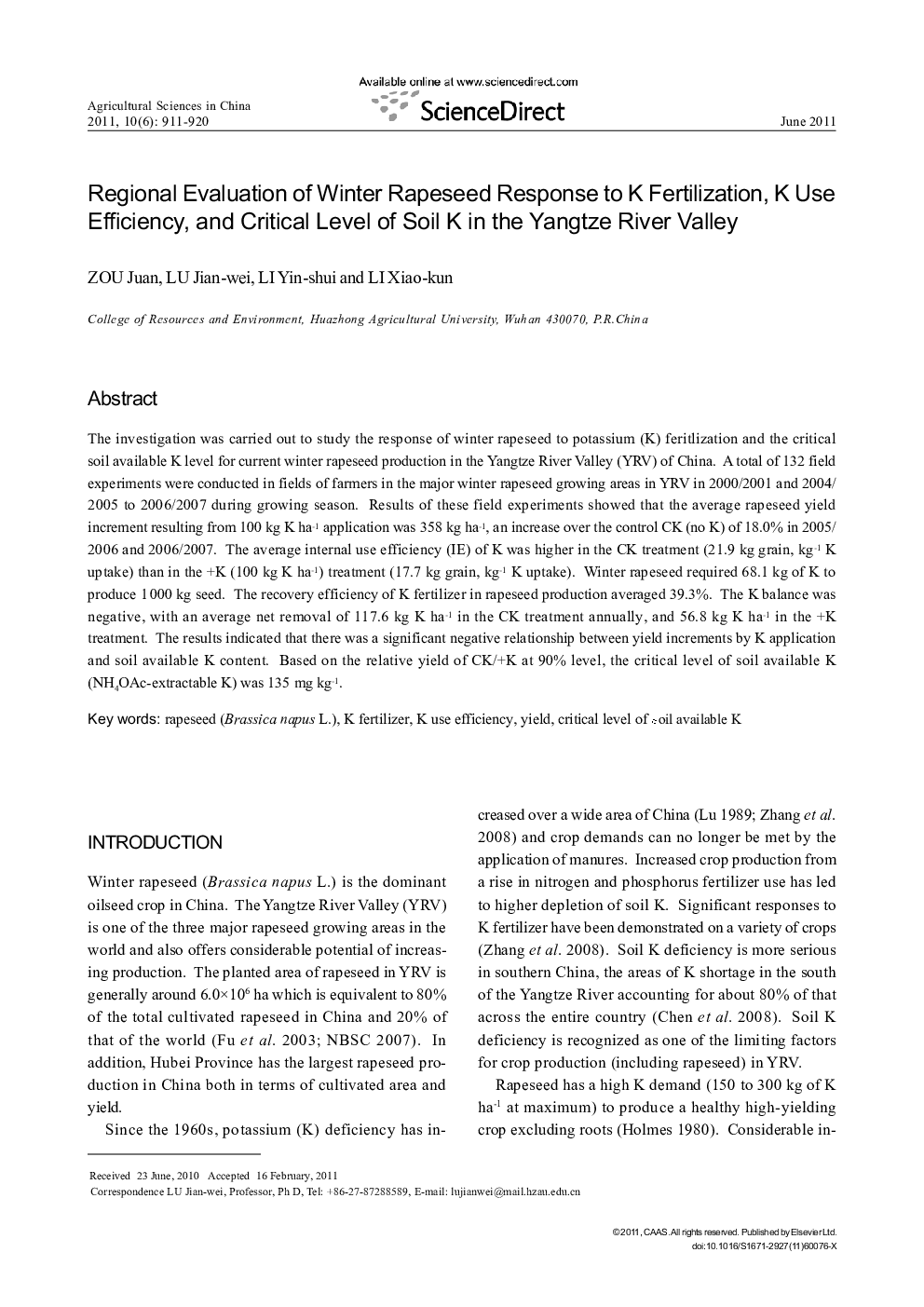| Article ID | Journal | Published Year | Pages | File Type |
|---|---|---|---|---|
| 4489947 | Agricultural Sciences in China | 2011 | 10 Pages |
The investigation was carried out to study the response of winter rapeseed to potassium (K) feritlization and the critical soil available K level for current winter rapeseed production in the Yangtze River Valley (YRV) of China. A total of 132 field experiments were conducted in fields of farmers in the major winter rapeseed growing areas in YRV in 2000/2001 and 2004/2005 to 2006/2007 during growing season. Results of these field experiments showed that the average rapeseed yield increment resulting from 100 kg K ha−1 application was 358 kg ha−1, an increase over the control CK (no K) of 18.0% in 2005/2006 and 2006/2007. The average internal use efficiency (IE) of K was higher in the CK treatment (21.9 kg grain, kg−1 K uptake) than in the +K (100 kg K ha−1) treatment (17.7 kg grain, kg−1 K uptake). Winter rapeseed required 68.1 kg of K to produce 1 000 kg seed. The recovery efficiency of K fertilizer in rapeseed production averaged 39.3%. The K balance was negative, with an average net removal of 117.6 kg K ha−1 in the CK treatment annually, and 56.8 kg K ha−1 in the +K treatment. The results indicated that there was a significant negative relationship between yield increments by K application and soil available K content. Based on the relative yield of CK/+K at 90% level, the critical level of soil available K (NH4OAc-extractable K) was 135 mg kg−1.
